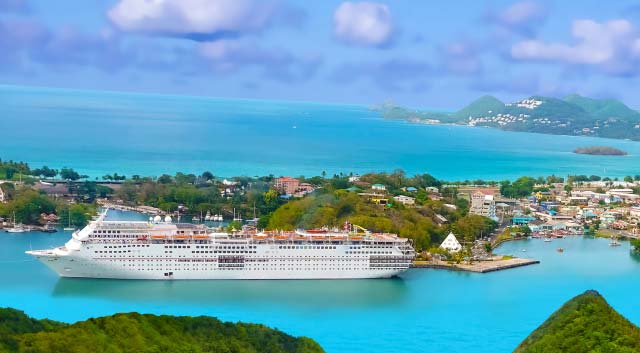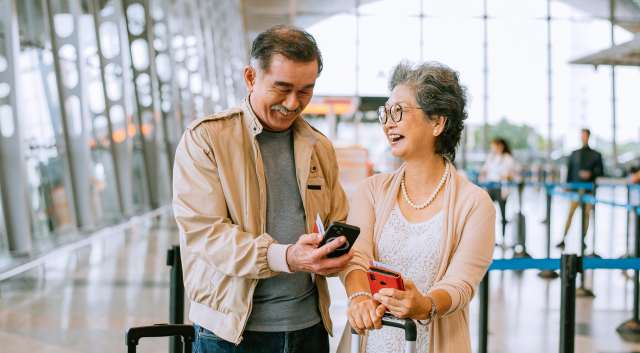Travel Insurance and Assistance for Vietnam

Vietnam is a diverse and beautiful country with stunning coastlines, mountains, waterways, and rice paddies. It's multicultural and known for its bustling street markets and delicious food. A trip to Vietnam is sure to be a memorable experience, but planning such an adventure can be intimidating. Many people wonder if travel insurance with assistance services is needed for Vietnam and what paperwork is required to enter the country.
In this guide, we'll explore how to choose your travel protection for your trip to Vietnam, look at medical insurance options, passport and visa requirements, and some other things that may be good to know before your trip.
Traveling to Vietnam: What Do You Need?
Vietnam is a popular tourist destination for Americans. Tourists are expected to have a visa to enter the country, but other than that, the entry requirements are minimal. There are no vaccination requirements, but the CDC provides a list of recommended vaccinations. In addition, there are no currency restrictions for tourists. The passport and visa requirements are described in detail below.
Passport
Travelers must have a passport with at least 6 months' validity remaining to be permitted to enter Vietnam, and the passport must have a visa page that can be used for the entry stamp. If your passport is due to expire within the next 6 months, or the pages are full, you may be refused entry to the country.
Visa
Tourists can apply for a Vietnam E-visa online via the Vietnamese Immigration Department. These visas are issued with a validity period of up to 90 days. There are two kinds of E-visas. A single-entry visa is the least costly. Those who expect to enter the country more than once during the visa's validity period — for example, if you're planning a trip to Vietnam, Cambodia, or Thailand — may wish to pay a slightly higher fee to get a multiple-entry visa.
How Much Travel Protection Do You Need for Vietnam?
If you're booking a trip, you may find yourself wondering, "Is travel protection mandatory for Vietnam?" The answer to that question is no. There's no legal requirement to buy travel protection for Vietnam. However, it would be a good idea to do so.
A direct flight on Vietnam Airlines from San Francisco to Ho Chi Minh City takes 16 hours and 20 minutes. Flights with a layover can take as long as 37 hours. While the cost of accommodation and food in Vietnam may be minimal, the cost of flights and the length of time it takes to get there can make a holiday in Vietnam an expensive undertaking.
It's a good idea to consider both the out-of-pocket expenses of the trip and the time and planning that goes into it. If your trip were to be canceled or delayed due to reasons beyond your control, would you be able to reschedule it? Insurance helps soften the financial blow of cancellation and can help bail you out if you miss connecting flights, lose your baggage, or fall ill while you're abroad.
In the following sections, we'll discuss some things to consider when trying to find the right travel protection for Vietnam.
What Travel Concerns Do You Have?
A trip to Vietnam most definitely falls into the realm of a long-haul flight. While there are airlines that offer direct flights from some U.S. states to Vietnam, many airlines have one or even two layovers. Each layover is a chance for a delay, cancellation, or missed connection.
Depending on your ticket type and the airline, you may find that you get a lot of support from the airline if something goes wrong when you're transferring between flights. However, flight delays can eat into the time you have to enjoy your destination. In addition, if you've booked each hop yourself and you're switching between operators, you might find you're on your own when it comes to making alternative arrangements if you miss a connecting flight.
The right travel protection plan helps give you peace of mind that if you miss a connection or a flight is canceled,. All you have to do is pick up the phone, and your travel protection provider can help you out.
What Health Concerns Do You Have?
Some travel protection plans include a medical component. For example, they might assist with medical expenses if you fall ill while in Vietnam or cover the cost of repatriation/medical evacuation. These issues can be complicated for people with pre-existing conditions, as not all insurance companies offer coverage for such issues. Before you choose a plan, check the plan to determine what sort of conditions and medical emergencies are covered, and be sure to disclose any pre-existing conditions you have.
Another thing to consider is emergencies that might occur before the trip. If you need to cancel the trip for illness, your travel protection might cover you for this. Most trip-cancellation policies cover people who need to cancel for health-related reasons or for reasons such as being called up for military service. In addition to this kind of coverage, some plans offer an option called Cancel for Any Reason (CFAR), which will refund a portion of the trip if you need to cancel it. This coverage is not available for residents of New York.
What Property Concerns Do You Have?
If you're planning a trip to Vietnam, you'll likely be staying for more than a weekend and will pack a lot of baggage. Travel insurance offers peace of mind that you could be reimbursed for certain necessary items you need to buy while you're away if your baggage is stolen, lost, or delayed.
If your flight to Vietnam involves one or more connections, it's possible your baggage may get held up along the way, so you might need to pick up a change of clothes and some toiletries when you arrive, even if you do end up being reunited with your baggage eventually. Being able to pick up the phone and call your insurance company and sort out such issues helps make the trip less stressful.
How Do You Get Travel Protection for Vietnam?
If you're planning a trip to Vietnam and are considering taking out travel protection, view Generali Global Assistance plans today. Our plans cover many travel needs. As part of our Standard policy, we offer Trip Cancellation and Interruption coverage, as well as coverage for medical and dental issues. Our 24/7 Travel Assistance Service can help ensure peace of mind.
Our Premium and Preferred plans offer additional coverage for those with more complex requirements, such as costly sporting goods or pre-existing medical conditions. Whatever your specific needs, we're happy to discuss your options and work with you to come up with a tailor-made travel protection plan.
Vietnam Travel Tips
To make the most of your trip to Vietnam, consider the following tips:
Learn a few words. English is widely spoken in Vietnam, but being able to say a few words in Vietnamese will go a long way. For example, "vui lòng" is "please" and "cám ơn" is "Thank you."
Check the weather. People tend to assume that the weather in Vietnam will always be hot, but this isn't necessarily the case. Check the weather forecast, as some areas, such as Sa Pa, can be quite chilly during the winter months. In addition, monsoon season can be wetter than you might think.
Try to travel in the off-season. July and August are peak travel times for vacationers, and the more tourist-focused areas of Vietnam can be incredibly busy during that time. The Lunar New Year is also a busy period. If you truly want to immerse yourself in Vietnamese culture, try to travel during a quiet time of year.
Respect religious traditions. Vietnam is home to people of many religions. If you're visiting a Buddhist, Taoist or Hindu temple, a church, or other place of worship, try to be respectful. Take a moment to cover your legs and arms, and check with your guide whether it's expected to remove your shoes before entering the temple.
If you're traveling to Vietnam, it's a good idea to invest in some travel protection before embarking on your adventure of a lifetime. Having the right coverage will help you enjoy the cultures, scenery and climate with peace of mind. Get a quick free and easy quote from Generali Global Assistance.
Travel Resources
See AllNote: Trip Cancellation for Any Reason coverage is not available to residents of New York and other eligibility requirements apply.
6413512401


